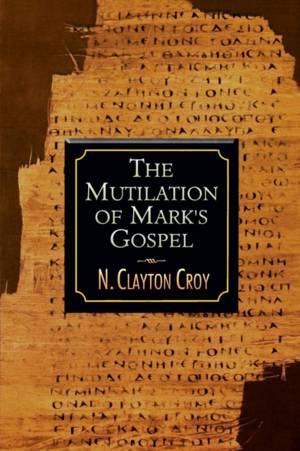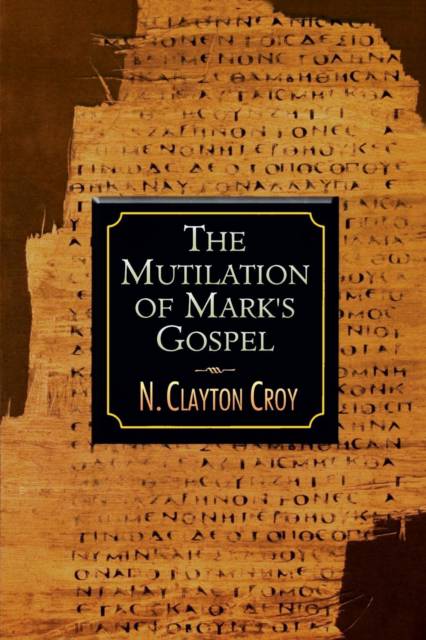
Bedankt voor het vertrouwen het afgelopen jaar! Om jou te bedanken bieden we GRATIS verzending (in België) aan op alles gedurende de hele maand januari.
- Afhalen na 1 uur in een winkel met voorraad
- In januari gratis thuislevering in België
- Ruim aanbod met 7 miljoen producten
Bedankt voor het vertrouwen het afgelopen jaar! Om jou te bedanken bieden we GRATIS verzending (in België) aan op alles gedurende de hele maand januari.
- Afhalen na 1 uur in een winkel met voorraad
- In januari gratis thuislevering in België
- Ruim aanbod met 7 miljoen producten
Zoeken
Omschrijving
This book theorizes that there was probably more to both the beginning and the ending of Mark's Gospel than we currently have in our Bible. It was once the consensus of scholars that Mark lacked its ending. Croy asks why scholarly opinions changed on this question during the late 20th century and whether earlier scholars may in fact have been correct. In short, this book has the potential to re-open a major debate in Markan studies. Beyond scholarly interest in the original extent of the Gospel text, there are implications for our understanding of Markan theology. If a conclusion has been lost, Mark may not be as negative in his portrayal of the disciples as we now assume. The credibility of the disciples - and Jesus' own credibility - also may have been rehabilitated by the original ending. Croy urges that we should not assume that post-resurrection appearance stories were unimportant to Mark or that Mark's theology of suffering would be incompatible with a triumphant outcome. The challenge to the scholarly consensus will be of interest to academics; the theological implications will make the book useful in seminary classes on the Gospels. The author's demonstration of the connection between the social context of biblical research and our ways of reading the Gospel is important for theological education in general. Readers will also benefit from an awareness of the process by which we have received the texts printed in our Bibles.
Specificaties
Betrokkenen
- Auteur(s):
- Uitgeverij:
Inhoud
- Aantal bladzijden:
- 208
- Taal:
- Engels
Eigenschappen
- Productcode (EAN):
- 9780687052936
- Verschijningsdatum:
- 1/04/2003
- Uitvoering:
- Paperback
- Formaat:
- Trade paperback (VS)
- Afmetingen:
- 153 mm x 227 mm
- Gewicht:
- 371 g

Alleen bij Standaard Boekhandel
+ 72 punten op je klantenkaart van Standaard Boekhandel
Beoordelingen
We publiceren alleen reviews die voldoen aan de voorwaarden voor reviews. Bekijk onze voorwaarden voor reviews.









